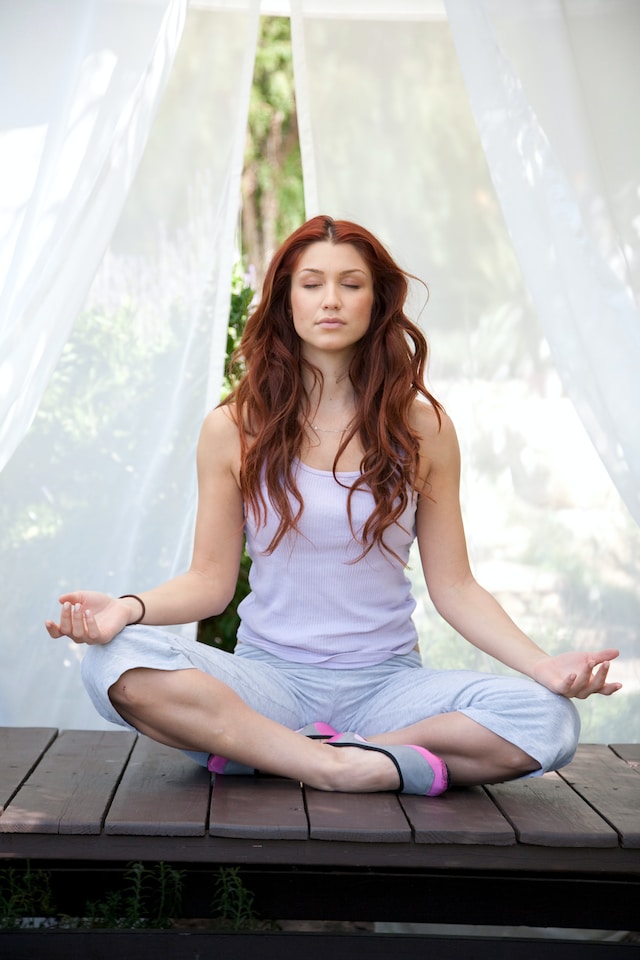Sleeping properly is so important to our overall health and well being. It is the time we get to rest and repair our physical bodies, switch off and rest the mind.
Sleep can greatly affect our mental and physical health.
Many of us suffer with insomnia, irregular sleep patterns, or simply not getting enough quality rest that we need to function optimally.

To ensure your sleep is restful, restorative and beneficial for overall health, here are some key principles and suggestions inspired by my own experience and the wisdom of Ayurveda.
Prepare Yourself And The Environment You Sleep In
- Ensure your room is clean and tidy, free from clutter and is well balanced energetically. It should be a peaceful, welcoming, calming place to be in (reference to the Vedic science of space and directional influences – “vastu shastra” – can assist in guiding us with this).
- Ensure the room is well ventilated and a comfortable temperature for sleep – not too hot or cold (recommendation is between about 18 – 23 degrees C).
- Have a warm bath or shower and imagine the energy and/or stresses of the day being washed away by the water and flowing down the drain. Use bath salts for cleansing and/or relaxing essential oils, such as lavender or chamomile.
- Play relaxing, soothing/frequency music before going to bed, such as OM chanting, sleep music at 432/528 hertz. This helps us to naturally go into a more relaxed brain wave state and can in turn induce a state of deep sleep and restoration.
- Have a warm relaxing, soothing drink, 1 hour before bed time, such as hot milk (or vegan oat or almond alternative) with haldi/turmeric (Golden milk), or chamomile herbal tea. Add 1 teaspoon Ashwaghanda powder to help relax, calm and encourage sleep. I have a special sleep time “moon milk” drink recipe – send me a message if you would like me to send it directly to you.
- Try to eat a healthy, balanced diet, appropriate for your mind-body type/doshic constitution. Do not eat over stimulating foods in the later part of the day (afternoon/evening time)
- Do not overeat. According to Ayurveda, following a meal the stomach should contain 50% food (approx. 2 cupped hands full), 25% liquids, and 25% air to enable effective digestion. To know when you have reached these amounts, you need to develop an awareness of digestion and learn to read your own body’s reactions/signals to the food you are consuming, as well as your body’s signals of satiety. Note–it is advisable not to eat at least 2 hours prior to sleeping. Your evening meal should be taken early in the evening (ideally just before sunset) to aid digestion and not have any adverse affect on your quality of sleep.
- Switch off devices (phones, laptops, T.V’s, all electronic devices) at least 2 hours before bed, and unwind naturally by having a bath, reading a book, meditating or listening to frequency music. Electronic devices emit an electro-magnetic field (EMF) that can affect and interfere with our own energy field. These can overstimulate the mind and make it difficult for us to switch off mentally and fall asleep quickly.
Sleeping According To “Vastu Shastra”
Sleeping, according to Vastu Shastra (Vedic Science of space and directional influences) is similar to Feng Shui).
As everything is influenced by the pull of the magnetic poles on the planet, including the movement of the continents itself, they also affect our own systems and energies. This is why when we lay down to rest, repair and rejuvenate our bodies at night, the direction in which we sleep is important.

In the northern hemisphere sleeping with our head in the direction of East is the best, most preferable position and promotes restful and nourishing sleep. Having the head point south, can also have some benefits. Sleeping with our head to the west may cause disturbed, disruptive sleep. However, one should avoid sleeping with our head pointing north, as this will disrupt the balance of the body, creating dis-harmony and can lead to other health problems.
Sleeping Position
According to Ayurveda, sleeping on your left side, also known as “Vamkushi” is the best sleeping position. Sleeping on the left side contributes to your health by putting less pressure on the organs therefore allowing them to function more optimally.

Some of the other health benefits of sleeping on your left side include: improved digestion; reduced pressure on the heart (due to it being positioned on the same side the lymph drainage is helped by gravity); improved blood flow to the spleen and enhanced lymphatic drainage. It also improves the function of the kidneys and liver.
It is also advised to sleep on the left side during pregnancy as much as possible, as doing so helps to take the pressure off the back and also increases the blood flow to the foetus and uterus. Sleeping on the left assists the smooth flow of nutrients to the placenta.
Quietening The Mind
Integrating daily meditation/yoga/pranayama/mantra chanting practices into your routine–can help improve quality of sleep significantly, as it will help regulate the nervous system, reduce stress levels, clear the mind and generally bring about more balance within. To gain the benefits-daily practice, ideally at set times is essential.

Photo by Patrick Malleret on Unsplash
If you have things on your mind, keep a journal/note pad and pen next to your bed and practice journaling or free writing, even just for 10 minutes before you switch the light on. This can help get all the thoughts occupying our minds onto paper, help one to feel lighter and stop the distracting thoughts that can often keep us awake. This practice can also help to put things into perspective, as they may not seem so bad once written down.
Going a step further with the journaling exercise, or you can just do this mentally as well, is to think of all the things that you were grateful for in the day, and say thank you for them, one by one, no matter how small. Once you have exhausted this list, then move on to visualising the things you plan to do the following day, setting realistic, achievable goals. This practice can also aid in clearing the mind, increasing positive mindset and thinking, as well as bringing about a sense of perspective and seeing the bigger picture.




